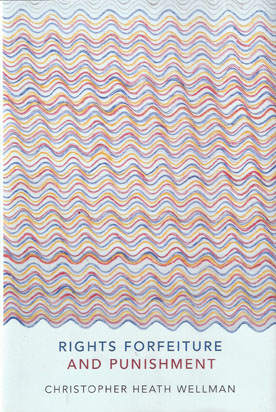
Given that persons typically have a right not to be subjected to the hard treatment of punishment, it would seem natural to conclude that the permissibility of punishment is centrally a question of rights.
Despite this, the vast majority of theorists working on punishment focus instead on important aims, such as achieving retributive justice, deterring crime, restoring victims, or expressing society's core values. Wellman contends that these aims may well explain why we should want a properly constructed system of punishment, but none shows why it would be permissible to institute one.
Only a rights-based analysis will suffice, because the type of justification we seek for punishment must demonstrate that punishment is permissible, and it would be permissible only if it violated no one's rights.
On Wellman's view, punishment is permissible just in case the wrongdoer has forfeited her right against punishment by culpably violating (or at least attempting to violate) the rights of others. After defending rights forfeiture theory against the standard objections, Wellman explains this theory's implications for a number of core issues in criminal law, including the authority of the state, international criminal law, the proper scope of the criminal law and the tort/crime distinction, procedural rights, and the justification of mala prohibita.